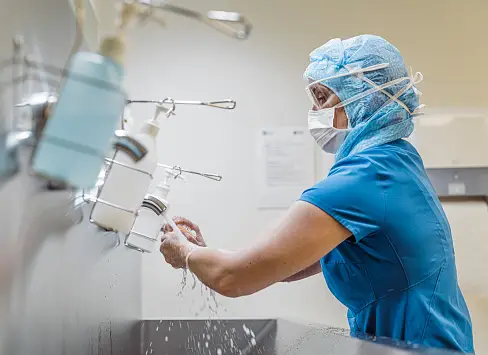Water purification systems remove contaminants, chemicals, and impurities from water, making it safe and suitable for drinking and other uses. These technology range from small-scale portable filters for personal use to large-scale installations supplying clean water to entire communities. Here are five types of water purification systems:
1. Activated Carbon Filters
Activated carbon filters work through the process of absorption. Organic compounds and contaminants adhere to the surface of activated carbon particles. There are two forms of these filters. These are granular activated charcoal (GAC) and carbon block filters. GAC filters contain loose granules of carbon that polish water by trapping contaminants. While carbon block filters offer a more solid, uniform structure for filtration. Activated carbon can be effective against chlorine, volatile organic compounds (VOCs), and certain pesticides and chemicals. This makes it a versatile solution for various water quality issues.
2. Reverse Osmosis (RO) Systems
RO systems employ a semi-permeable membrane to filter out a wide array of contaminants from water. This process applies pressure to force water through the membrane, leaving impurities behind. This water purification system can remove pollutants such as chlorine, salt, sediments, and other dissolved solids, making the water safer and more pleasant to drink. They may be used in residential and commercial settings due to their efficient production of high-quality drinking water. Reverse osmosis systems can demineralize or deionize water. This offers a solution that goes beyond the capabilities of standard filtration. While they require regular maintenance to promote optimal performance, the quality of water they produce is often superior.
3. UV Water Purifiers
UV water purifiers use ultraviolet light to disinfect water by killing bacteria, viruses, and other pathogens. This purification method is recognized for rendering water safe to drink while maintaining its taste and odor. The process involves exposing contaminated water to UV light at a specific wavelength, penetrating harmful microorganisms and disrupting their DNA, preventing them from reproducing. These systems can be combined with other filtration methods to promote comprehensive water treatment. UV light alone may not remove dissolved solids or heavy metals. You can use them for residential and commercial applications, offering a reliable solution for ensuring the microbiological safety of drinking water.
4. Ion Exchange Systems
Ion exchange systems operate by swapping one set of ions for another. It effectively softens water, removes scale-forming calcium and magnesium ions, and replaces them with sodium or potassium ions. The process can be adapted for deionization and demineralization, targeting a range of dissolved and ionized impurities. These systems can be used in residential settings to improve water quality and in various industries requiring pure water. Ion exchange filters may contribute to the longevity of plumbing systems and appliances by preventing scale buildup.
5. Distillation Systems
Distillation systems purify water by heating it to the point of vaporization and then condensing the steam back into liquid form. This process can remove impurities, including bacteria, viruses, minerals, and other dissolved substances. You can install this system at the point of use, such as kitchen faucets. Distillation units provide safe drinking water directly from the tap. These systems might not be commonly used for treating large volumes of water, such as that from private wells, due to the cost and energy required for operation. In laboratory settings, distilled water is often necessary for experiments and equipment operation, highlighting the versatility of distillation in providing pure water.
Purchase a Water Purification System
Each water purifying system offers unique benefits and is designed to meet different needs and preferences. When choosing a water purification system, identify the specific contaminants in your water supply, your household needs, and any health goals you might have. Consult with a reputable provider for detailed recommendations and products tailored to your needs. Purchasing a water purification system from professionals can give you access to advanced water systems.



